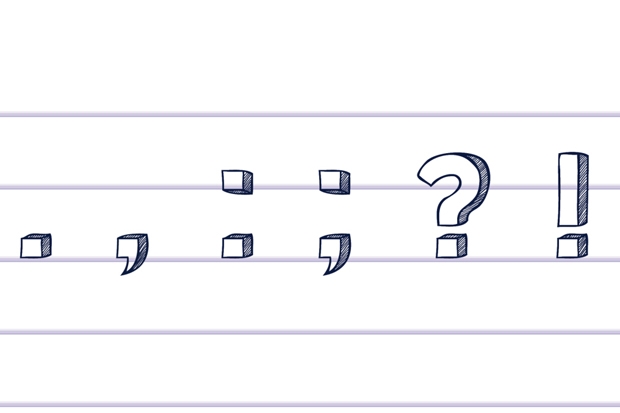Typical mother-to-mother email, January weekday, 2015: ‘Thanks so much for helping out yesterday, Jamie had a great time with you all, thanks also for bringing his games kit home, let me know if you need me to help tomorrow… xx’
Emails and texts like this, flitting across the ether in their thousands, demonstrate the free-flowing currency of helpfulness — mother going the extra mile for mother, in her Volvo, every day — in school-run land. But have you noticed the appalling punctuation? The use of the ‘weak comma’, or ‘splice comma’, where there should be full stops? My guess is that you have, especially if you are over 45 and went to a good school: one at which you were well punctuated. I learned that the passive verb ‘to be punctuated’ could be used of a person as well as of a sentence in this magazine last week: Julie Burchill mentioned that her husband was a keen grammarian: ‘Once he punctuates one, one stays punctuated.’ Well, I wish Daniel Raven would come and punctuate the breathless texters of 2015. Those commas are pathetically weak: as weak as inflatable plastic fences where sturdy brick walls between sentences should be.
What is the psychology behind the increasing use of the weak comma among the under-45s? I think it is simply a fear of the full stop. The full stop sounds (to the unpunctuated) too scarily abrupt and final. The full stop announces, ‘I have just asserted something’ — even if that something is as harmless as ‘Jamie had a great time with you all.’ It feels safer to shroud one’s remark in a gentle, liberal, unassertive comma, so no one can pin you down to being accountable for having actually made a statement.








Comments
Join the debate for just £1 a month
Be part of the conversation with other Spectator readers by getting your first three months for £3.
UNLOCK ACCESS Just £1 a monthAlready a subscriber? Log in